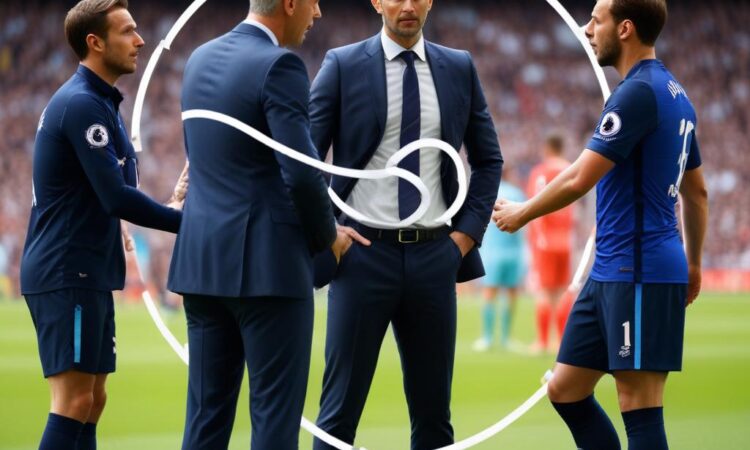Busting Myths About Spurs’ Injury Crisis – An Onuoha Column
Right, Spurs fans, let’s talk injuries. Another season, another seemingly endless list of players sidelined. It’s enough to make you want to chuck your lucky scarf in the Thames (don’t actually do that, it’s bad for the environment!). But instead of just groaning and accepting it as fate, let’s dig a little deeper. BBC Sport columnist Nedum Onuoha recently shed some light on the situation, and it’s way more nuanced than you might think.
The common narrative? Spurs are cursed. They’re training too hard. Their physio team is rubbish. Their pitch is made of glass. Pick your favourite conspiracy theory, there’s probably a Reddit thread dedicated to it. But Onuoha’s take offers a more insightful, and perhaps less dramatic, perspective.
He highlights the clash of cultures – or, more accurately, the clash of *mindsets* – between managers, physios, and the players themselves. Imagine this: you’ve got a manager who’s all about winning, NOW. Every game is a must-win, every training session is high-intensity, and resting a slightly niggly hamstring? Forget about it! That’s the kind of attitude that can push players beyond their limits, leading to injuries that could have been easily avoided.
Then you’ve got the physios, who are the unsung heroes (or villains, depending on your perspective). Their job is to keep players healthy, to prevent injuries before they happen, and to manage existing ones carefully. But they’re often caught in a tricky situation. They can advise players to rest and manage their condition, but who are they to tell the manager what to do? If a player is deemed fit enough to play in the manager’s eyes, it’s hard for the physio to push back, even if they know it’s a risky move.
And let’s not forget the players themselves. Their mindset plays a massive role. Are they pushing through pain because they want to impress the manager? Are they ignoring subtle warning signs because they fear being dropped from the team? Are they being honest about their physical condition for fear of impacting their playing time?
This isn’t just a Spurs problem, of course. Every club deals with injuries, but the sheer volume at Spurs in recent years has amplified the issue and makes it a perfect case study. Onuoha suggests that the key to managing this is communication – open, honest communication between the manager, the physios, and the players. It’s about finding a balance between pushing players to their limits and ensuring their long-term health and well-being. It’s about understanding that sometimes, resting a player isn’t a sign of weakness, it’s a sign of smart management.
It’s about shifting the culture from one that glorifies playing through pain to one that values preventative care and proactive injury management. This isn’t just about getting players back on the pitch quickly; it’s about building a sustainable system that minimizes the risk of future injuries.
Onuoha also touched upon the importance of individual player needs and recovery profiles. One size doesn’t fit all when it comes to injury management. What works for one player might not work for another, and a blanket approach to training and recovery can lead to problems down the line.
So, the next time you see a Spurs player go down injured, remember it’s not simply a case of bad luck. It’s a complex issue with many factors at play. It’s a system issue, not just one individual problem. And understanding that system is the key to breaking the cycle of injuries that have plagued the club.
The solution isn’t a magical cure, a new physio, or a change of pitch. It’s about a cultural shift within the club, a prioritization of open communication and a more holistic approach to player welfare. A long-term strategy focusing on prevention rather than just reaction. Only then might Spurs finally escape the injury curse… or at least significantly mitigate it.
Ultimately, Onuoha’s analysis provides a much-needed dose of reality. The Spurs injury crisis is not a simple problem with a simple solution. It’s a multifaceted issue requiring a coordinated and thoughtful approach from all involved.
Let’s hope that the club takes note, and we see a healthier, more successful Spurs team in the future.

